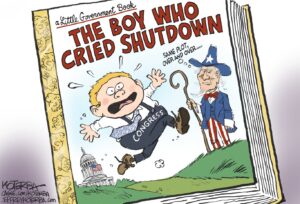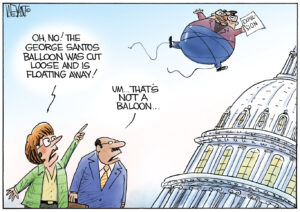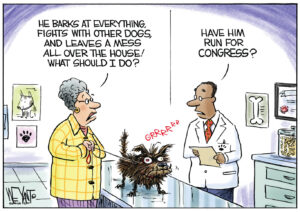From Wisconsin to Florida, Strong Winds of Political Remorse
Still spinning in the vortex of the May 24 tornado in New York's 26th Congressional District, Republican leaders insist that Democrat Kathy Hochul's upset victory on their party's turf was meaningless.Still spinning in the vortex of the May 24 tornado in New York’s 26th Congressional District, Republican leaders insist that Democrat Kathy Hochul’s upset victory on their party’s turf was meaningless. They say that Republican nominee Jane Corwin lost because of her own weak campaign, or the presence of a big-spending tea party candidate on a third ballot line, or just about anything except the Republican scheme to slash Medicare — which became the dominant topic of debate during the special election’s final weeks.
Yet there are signals not only from upstate New York but around the nation that the Republicans face surging discontent, as voters learn what they intend when they attain power. With a majority in the House of Representatives, they have devised a budget plan that would help nobody except the wealthiest taxpayers, while devastating the nation’s health insurance programs, physical infrastructure and environment.
With most of the nation’s statehouses under Republican control, they have inflicted harsh cutbacks in education, health care and public safety, while assailing every public employee, from teachers to firefighters and cops.
Evidently, the people do not approve of these assaults on the standard of living of the American middle class.
According to recent public opinion polls, in fact, the people feel a keen sense of “buyer’s remorse” for supporting the Republicans last November. From the Canadian border down to the Florida coast, swing-state voters are expressing deep regret over the results of the midterm elections.
In Wisconsin, the latest surveys show that substantial majorities now regret electing Gov. Scott Walker, who has earned national fame (or infamy) for rescinding the collective bargaining rights of his state’s public workers. Three months after the end of the mass protests against Walker’s actions, the nonpartisan Public Policy Polling firm found that 54 percent of his Wisconsin constituents disapprove of his performance, while only 43 percent approve. Asked whether they would support or oppose his removal from office in a recall election, 50 percent said yes and only 47 percent said no.
The same poll found that Wisconsin voters are also apparently sorry that they replaced progressive Democratic Sen. Russ Feingold last fall with a tea party extremist named Ron Johnson. Today, they would re-elect Feingold with a comfortable margin over any Republican, and would bounce the Republican majority in the state Legislature, too.
As for Medicare, the publicity afforded Rep. Paul Ryan, the Wisconsin author of the Republican plan to transform the single-payer national health insurance into a stingy voucher, is rapidly losing popularity in his home state. A new PPP polls shows that Ryan’s approval rating has dropped precipitously over the past six months, with 46 percent now viewing him unfavorably and 41 percent viewing him favorably. Perhaps that is why he has decided not to run for the state’s open Senate seat.
Recent polls show the same kind of repentance over the midterm Republican sweep among voters in Florida and Ohio — except that the anger in those states seems even deeper.
A nonpartisan Quinnipiac College poll released on May 25 found that Florida voters now disapprove of Republican Gov. Rick Scott, a far-right ideologue whom they elected narrowly last fall, by a margin of 57 percent to 29 percent. Never popular, Scott began to plummet in polls as early as last March, when he commenced a series of attacks on the state’s teachers, and his proposals for deep cuts in education and health care (and in taxes on millionaires like himself) have sent the bald-domed insurance magnate into a free fall.
Meanwhile, Ohio voters likewise wish they could be rid of Gov. John Kasich, who has imitated Scott Walker’s assault on the public sector. Asked how they would vote if last November’s election were held today, the clear answer — by a remarkable margin of 25 points — is that they would keep Ted Strickland, the defeated Democratic incumbent, instead of replacing him with Kasich.
Such powerful signs of voter disillusionment portend serious trouble for the Republicans. And unlike the special election result in New York, those frightening numbers can indeed be blamed on the tea party, which has imposed an extremist ideology that most Americans reject.
If Democrats can at long last learn to explain how they differ from their right-wing adversaries — and if they stand fast in protecting the middle class — then the election of 2012 will be theirs to win.
© 2011 Creators.com
Your support matters…Independent journalism is under threat and overshadowed by heavily funded mainstream media.
You can help level the playing field. Become a member.
Your tax-deductible contribution keeps us digging beneath the headlines to give you thought-provoking, investigative reporting and analysis that unearths what's really happening- without compromise.
Give today to support our courageous, independent journalists.






You need to be a supporter to comment.
There are currently no responses to this article.
Be the first to respond.